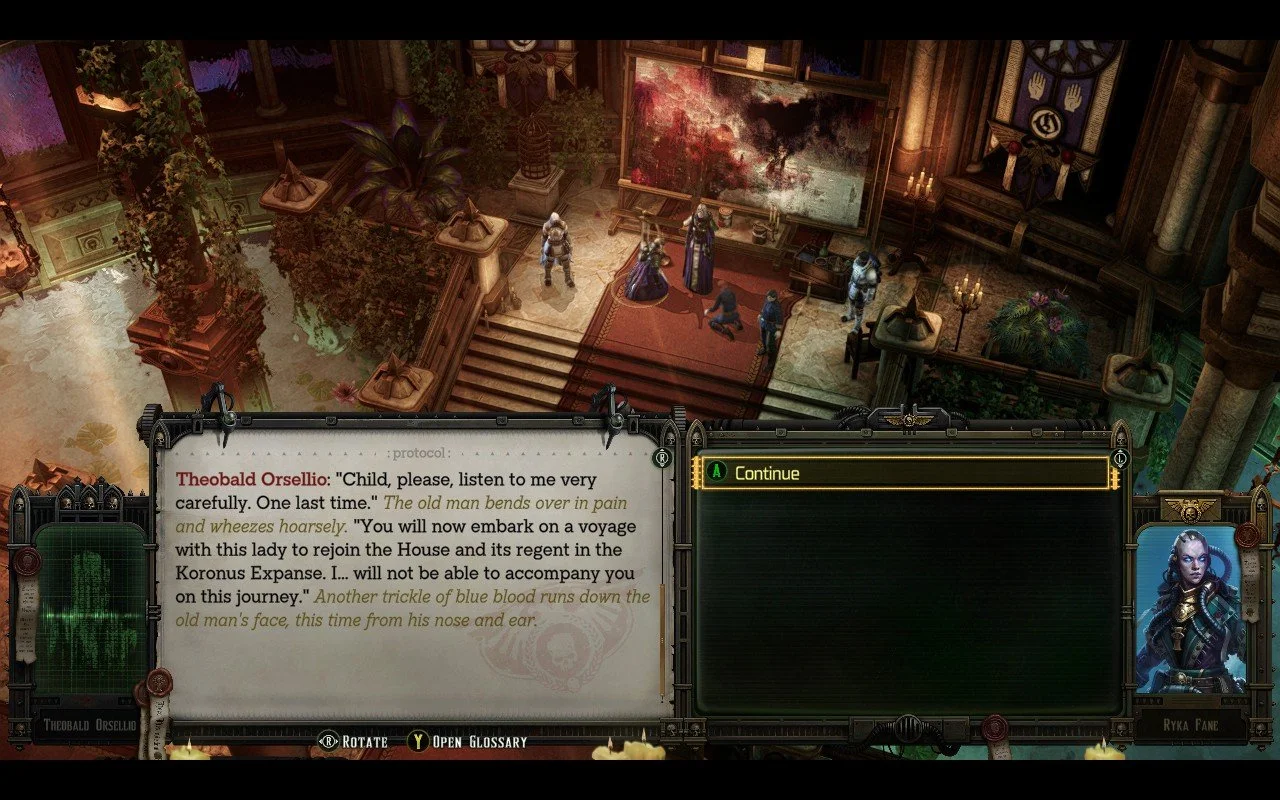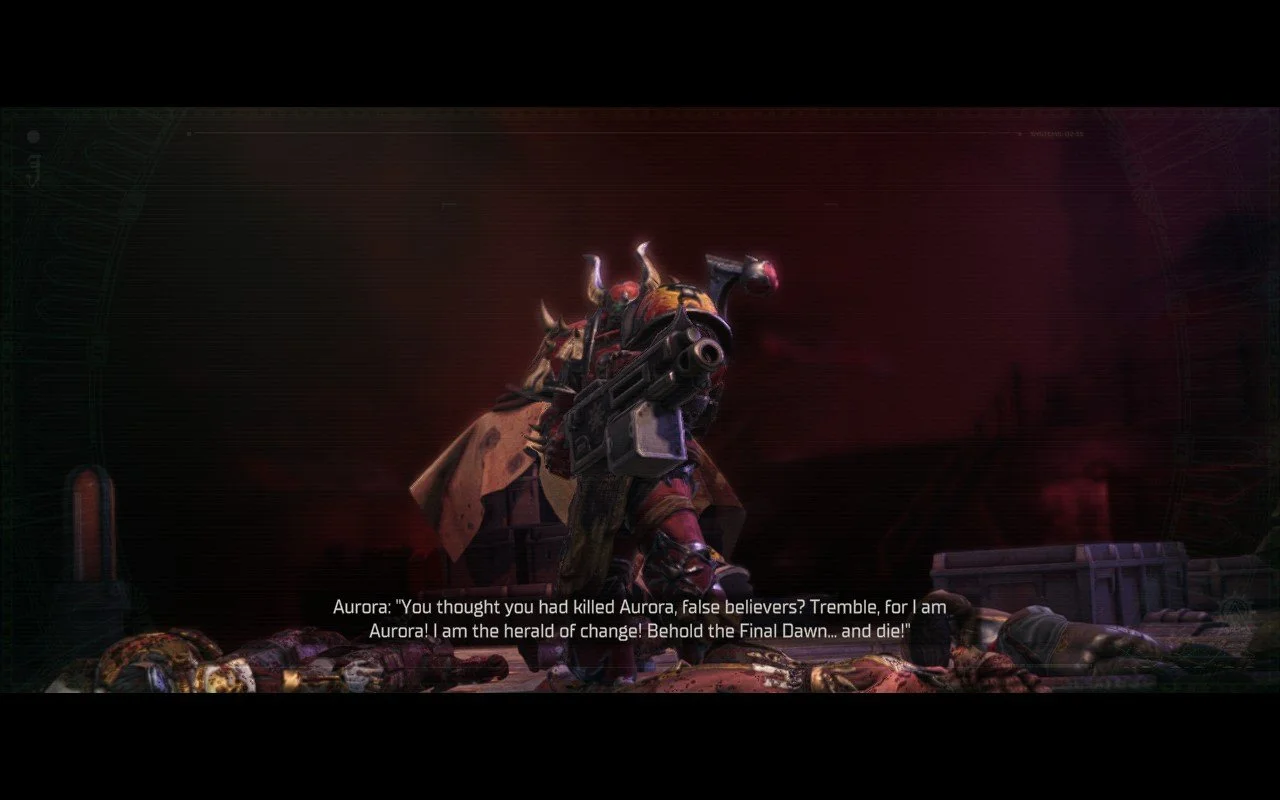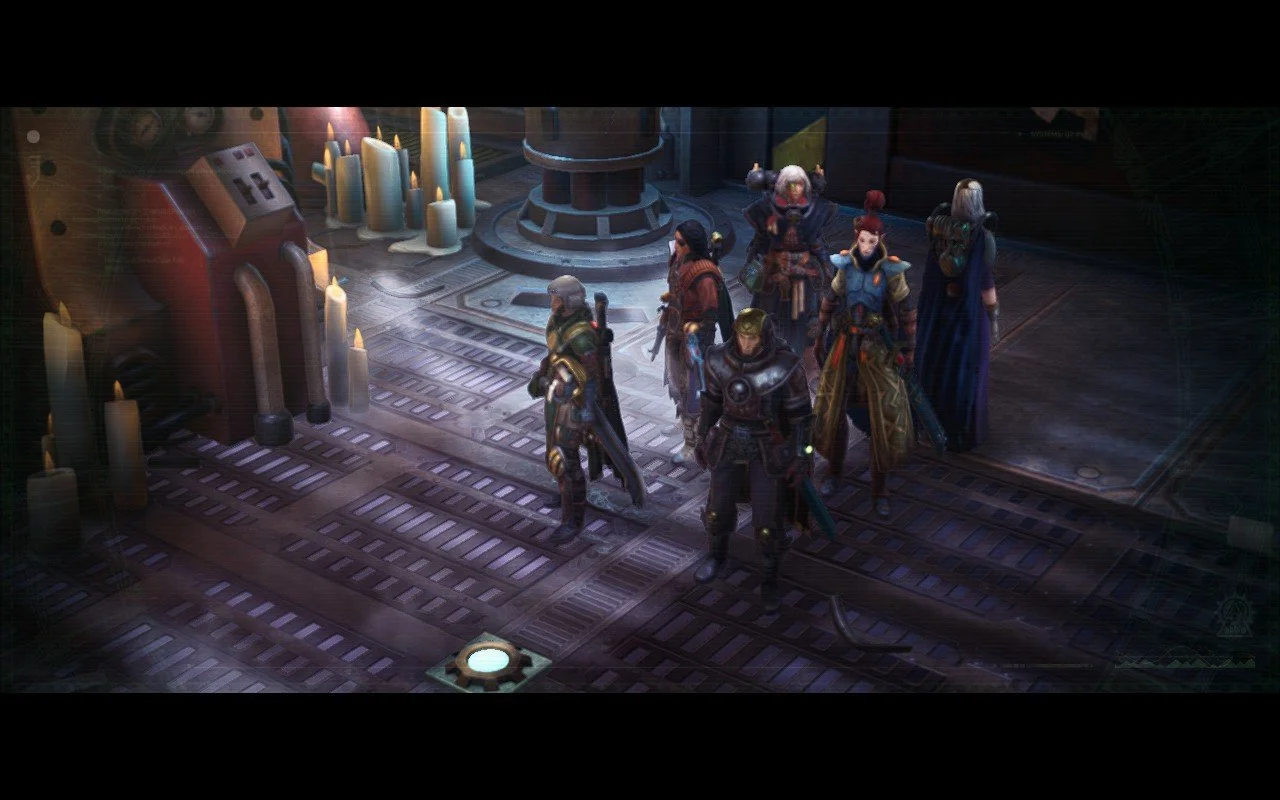The Hammer just misses the Nail.
The Warhammer licence, regardless of it taking place within its more fantasy setting or the vastness of space, has translated itself to video games in some truly remarkable and memorable releases. From Vermintide to Inquisitor Martyr, to Boltgun and Dark Tide, I’ve slowly become a massive fan of the licence. While I’ve played my fair share of its entire library, Rogue Trader is the first time I have been this heavily conflicted with the series in videogame form.
Rogue Trader follows in the unenviable footsteps of Larian's Baldur's Gate 3, a title that while different than what developer Owlcat Games has crafted here, is one with enough similarities that it's hard not to bring them both up in the same conversation. Regardless of the shadow that looms high above any future CRPG for the next few years, it is the lack of polish and balancing that hurts Rogue Trader the most. From a deeply frustrating battle in Act II, that forced me to restart with a completely different build, to constant AI issues and a host of technical ones, Rogue Trader did everything it could to sour my time with it, which is a shame since the bulk of the game borders on absolute brilliance.
Apart from those issues, and a few other poorly executed systems, I still found a lot to enjoy with Rogue Trader. The characters were memorable with strong performances and backstories, to arcs that would continue to surprise me. I found my time getting to know them to be worthwhile and beneficial to my experience. At the same time, I would have preferred everything to be voiced, ala the narrator in Baldur’s Gate 3. The moments that were voiced stood out and gave the game and its companions that near-perfect Warhammer 40K experience. The main story can deviate from its initial premise for a lot longer than I would have liked, but its execution still continued to keep my interest even well after 100+ hours.
At the start of your journey, you'll inherit the mantle of Rogue Trader after the curious demise of your predecessor and distant relative, Theodora Von Valancius, a woman known the galaxy over. Her death shocks the crew and all who knew her. While this is a big moment in the game, it really isn’t visited that much until much further in the story. That said, when you do finally discover the events that led to her death, it is both shocking and the tiniest bit disappointing. Had more of the game dived into attempting to figure out who the killer was, then I feel the reveal would have been significantly better handled. Still, it only stands out because of who ended up doing the deed.
Taking over as the new Rogue Trader comes with some important choices and responsibilities, not to mention commanding your own ship and crew throughout the Kronos Expanse. You'll then stock your team with a variety of personalities from all walks of life, some of whose values may not always align with yours. This comes down to morality choices between Dogmatic, Heretical, and Iconoclast; traits that dictate your moral standing within the galaxy. This resulted in numerous interactions where I'd have the option to end an argument or misunderstanding with a bullet to their head or through more diplomatic conversations. I lost count of the number of times it afforded me the choice to kill Idira, my Psyker, as she would start to almost unravel at the seams. This layered approach of making a ragtag group of all walks made interactions with my team extremely exciting.
Throughout the game, you’ll meet a decently sized group. You’ll first meet up with Abelard Werserian, a powerful warrior who is loyal to the Rogue Trader line. Soon afterwards, you’ll recruit Idira Tlass, and Sister Argenta, a warrior of the Adepta Sororitas, and one of my favorite characters in the game. Cassia Osellio, a Navigator, joins your party as part of the main quest and quickly became my favorite character to interact with. Her power is destructive and her interactions with the crew were always fun and bizarre to experience. Pascal Haneumann the tech-priest and Heinrix Van Calox the pysker-biomancer then join afterward, making for solid recruits who you’ll come to rely on.
While I’ll leave out a few of the characters to discover on your own, Jae Heydari, who quickly became my romance option was a blast to engage with. Her wit and humor made for a great time. Lastly, I’ll talk about one more of the cast as they were vastly interesting to bring into the squad. As you push a bit more into the story, you’ll encounter the Xeno race, largely pinned as enemies of humanity, but an outcast by the name of Yrliet Lanaevyss joins you. At first, you have the option to kill her, and frankly, that option comes up a lot, but having this gifted sniper on your team can result in making short work of a great deal of fodder in front of you. I also liked talking with her as she is unique to the other members of your team, complete with limitations on what she can wear, given her species.
As you craft your own character, you’ll do so by determining your origin. This details your attributes, skills, and modifiers to those skills. The Origin is the backbone of your class and details which Secondary Archetype you’ll transfer into at level 15. From Commissars to Nobles, to being a Vagabond or a Sanctioned Pysker, there are plenty of Origins to choose from. Then, you’ll pick from one of four initial Archetypes; Officer, Operative, Solider, and Warrior. Each Archetype can feel truly different from one another as you’ll have unique skills that can aid in buffing your team or even allowing a member of your squad to attack a second time.
Once you hit level 15, you’ll unlock a second skill tree for an additional Archetype. Officers can become a Grand Strategist, Master Technicians, or a Vanguard, increasing their vast power as they become unstoppable on the battlefield. Operatives share in the Grand Strategist, but bring Assassin and Bounty Hunter to the mix, making them perfect for a ranged attacker. Soldiers share in Master Tactician and Bounty Hunter, but add the Arch-Militant to the list of choices. Finally, Warriors lack an Archetype of their own as Assassin, Arch-Militant, and Vanguard are recycled here, making for a slightly disappointing evolution of the class.
From your available companions, you’ll be able to bring five with you, making for a party of six. You’ll manage their inventory, and what equipment they have, as well as leveling their class and Archetype. I do wish the skill tree system was a bit more intuitive as it’s a fairly clunky and convoluted system with an incredibly small font that didn’t always translate what it wanted from me. While I eventually made peace with it, it feels like a system that could have been designed to be much easier to grasp from the start. As the bulk of my playthrough was on the Steam Deck, that minuscule font was sometimes impossible to read.
Once you start to play around with each Archetype throughout your team, as well as outfitting them to get the most out of their skills, combat is where the bulk of Rogue Trader shines. Combat sees you using a grid-based movement system as well as action points to determine what skills and abilities you want to use during a character’s turn. Each Archetype can change how you move, the amount of times you can attack during your turn, as well as afford other members of your team to attack a second time. Combine that with using cover and terrain to take advantage of your opponents, and Rogue Trader provides a decent level of depth to make encounters fast-paced and cutthroat.
Most battles start out where you can place your team in positions that suit their class. Snipers can hang back while your melee attacks can jump right into battle. I mentioned a frustrating battle in Act II earlier in this review and this fight removed my ability to be strategic with my placement, causing the group to be surrounded and vastly outnumbered. While having the odd against me wasn’t something new as the game did and does this quite often, the fight removed what I enjoyed so much about what the game had done up until that point.
As you make your way across the galaxy, you'll occasionally take part in space combat via your ship. Like your standard combat, this is also turned-based. While that aspect of it is fine, I rarely engaged with it due to how you navigate and turn. While your forward movement has a decent amount of tiles to take advantage of, you cannot turn around or take abrupt turns. This results in often taking multiple rounds to get any sort of angle as enemies will often stay on your rear, a location your weapons cannot reach. While you can send out small missile barrages, they too have limited movement and suffer from the same issue. I appreciate the fact Rogue Trader has this as a distraction from standard combat, complete with the ability to upgrade and enhance your ship, but I just didn't find it played well enough to make me seek it out.
Traversing the Kronos Expance itself is also a bit more convoluted than it needs to be. Navigating the space map just isn’t fun as the cursor on a controller doesn’t know what planet it wants to move to. There is a point system that rewards discovery, but it is never explained well enough, making certain requests end up in failure as you lack the points to travel there immediately. I love the aesthetic of the space map, but just felt the execution of navigating it to be less than stellar.
Rogue Trader does lack against many of its peers when it comes to the game’s visuals. It certainly nails the Warhammer 40K look, but character models are very sparsely detailed and are noticeably low-poly. It also doesn't help that much of its cast doesn't match their artwork, especially Cassia, who has an incredible image to accompany her, but her model doesn't look a thing like it. I also found a great deal of environmental objects to get in the way, often blocking entire battles unless I manually moved the camera. The game does well for its environments, but you'll find a lot of repeated use that makes a few locations less memorable.
An issue that was present during both playthroughs was odd moments where the AI would just run off. Almost any time I clicked on a door to leave, each of my companions would run in different directions, including the character I used to click the door. This would happen with chests as they would run to attempt to collect it from behind a wall, sometimes running to the other side of the map. I would get trap alerts that would freeze the gameplay and I would isolate a companion to then go and deactivate the trap, only for my party to suddenly run in various directions and set off the trap anyway, suffering from wounds unless I returned to the ship to heal.
These weird AI moments were so constant that I had to reload whole sections due to their injuries suffered from the traps. The times I would want to leave an area only for them to run around randomly was in the hundreds. It was just incredibly bizarre how often these issues would occur. Combine this with about a half dozen crashes and moments where I simply couldn't loot or even interact with objects in the environment, Rogue Trader’s lack of polish was constantly apparent around every corner.
Rogue Trader certainly has some highs and lows, but its lows are more prevalent and become a constant companion during its lengthy playtime. I had planned on having this review done a few weeks ago, but having to replay a large chunk of the game all over again certainly soured my remaining time with it. Had I followed a build guide from the start, then I likely would be a bit higher on the game than I am now. However, knowing that that particular battle in Acti II was a moment other players also had issues with at least reaffirms my overall criticisms here.
I think most of Rogue Trader is superb, showing that Owlcat Games certainly has something special and does a great job at conveying the franchise in such a manner. With more polish and a more intuitive approach to its progression and menu systems, then I can see a worthwhile series down the line. As it stands, Rogue Trader is a game that is good but should have been substantially better, given the pedigree of the studio. It had all the pieces to be something truly fantastic, but a wealth of technical issues and poor execution caused the game to suffer far more than it succeeded.
Developer - Owlcat Games. Publisher - Owlcat Games. Released - December 7th, 2023. Available On - Xbox One, Xbox Series X/S, PS4/PS5, PC. Rated - (T) Blood, Suggestive Themes, Use of Drugs and Alcohol, Violence.
Platform Reviewed - Steam Deck/PC. Review Access - A review code for the game was provided by the publisher for the purpose of this review.


















Jeff is the original founder of Analog Stick Gaming. His favorite games include The Witcher III, the Mass Effect Trilogy, Hi-Fi Rush, Stellar Blade, Hellbade: Senua’s Sacrifice, and the Legend of Heroes series, especially Trails of Cold Steel III & IV.